Top Search Engine Marketing Strategies to Boost Your ROI
- Chase McGowan

- Jul 25, 2025
- 15 min read
In 2025, winning at search marketing isn’t about having the biggest budget; it's about having the smartest strategy. Many businesses find themselves trapped in expensive contracts with large, impersonal agencies, only to watch their ad spend evaporate with little to show for it. These bloated agencies often apply a one-size-fits-all template, lacking the specialized focus and direct accountability required for true performance. They spread their resources thin, leaving your campaigns managed by junior-level staff who miss critical opportunities for optimization.
This guide cuts through that noise. We will explore several high-impact search engine marketing strategies that, when executed with precision by a dedicated expert, consistently outperform oversized teams. You will learn how a focused, agile approach from a specialist consultant to PPC, SEO, and conversion optimization delivers a superior return on investment. The difference lies in eliminating waste and capitalizing on the nuanced opportunities that larger, slower agencies overlook. Prepare to move beyond generic advice and learn the specific tactics that transform your campaigns from a costly expense into a powerful, predictable growth engine. This is the advantage of working with a specialist, not a generalist firm.
1. Pay-Per-Click (PPC) Advertising
Pay-Per-Click (PPC) advertising is a foundational search engine marketing strategy where you pay a fee each time a user clicks your ad. Executed on platforms like Google Ads, it allows you to bid on specific keywords and place your ads at the very top of the search engine results pages (SERPs). This model offers unparalleled control and immediate visibility, driving highly targeted traffic to your website precisely when users are searching for your solutions.

Unlike organic SEO, which takes time to build, PPC delivers instant results. This makes it ideal for businesses needing to generate leads quickly, such as a local service provider bidding on "emergency plumber near me" or an e-commerce store promoting a flash sale. The key is to manage campaigns with the precision of a specialist, as wasted ad spend can accumulate rapidly when managed by junior staff at a bloated agency.
Actionable PPC Implementation Tips
Filter Irrelevant Clicks: Start with a robust list of negative keywords to prevent your ads from showing for unrelated searches. This single action protects your budget from day one.
Focus Your Bids: Begin with exact match keywords for your most valuable search terms. This gives you maximum control over who sees your ads and helps establish a strong initial Quality Score.
Track Everything: Implement conversion tracking before you spend a single dollar. Without it, you are flying blind and cannot optimize for what truly drives revenue.
Effective PPC management requires constant attention and specialized expertise. Partnering with an expert consultant often yields better results than working with a large, impersonal agency where your account is just one of many. For a deeper dive into this, you can learn more about the advantages of hiring a senior Google Ads consultant.
2. Search Engine Optimization (SEO)
Search Engine Optimization (SEO) is the long-term practice of enhancing your website to rank higher in organic, non-paid search results. It is one of the most powerful search engine marketing strategies, focusing on building sustainable online visibility by signaling to engines like Google that your content is the most relevant and authoritative answer to a user's query. This approach builds digital assets that generate compounding returns over time, driving traffic without a direct cost per click.

Unlike the immediate results of PPC, SEO is a marathon, not a sprint. It is the ideal strategy for establishing brand authority and becoming a go-to resource in your industry, like HubSpot did with its inbound marketing blog. Success hinges on a deep understanding of search algorithms, user intent, and technical best practices. While it takes time, a strong SEO foundation makes all your marketing efforts, including paid ads, more effective by improving your site's overall quality.
Actionable SEO Implementation Tips
Prioritize User Intent: Move beyond simply matching keywords. Analyze the "why" behind a search and create comprehensive content that fully solves the user's problem.
Master Technical Health: Ensure your website is optimized for Core Web Vitals and provides a flawless mobile experience. Slow load times and poor usability will undermine even the best content.
Build Authority with Links: Earn high-quality backlinks by creating valuable, link-worthy assets like original research, detailed guides, or free tools. This signals trust and authority to search engines.
Effective SEO requires a consistent, expert-led approach. While large agencies often apply a one-size-fits-all model, a dedicated specialist can tailor a strategy to your unique business goals, ensuring your investment builds a true competitive advantage. To better understand its foundational role, you can read more about the evolution of search engine marketing.
3. Keyword Research and Analysis
Keyword research is the bedrock of all successful search engine marketing strategies. It involves identifying and analyzing the specific search terms potential customers use when looking for your products or services. This process reveals crucial data on search volume, competition, and user intent, allowing you to build both paid and organic campaigns that resonate with your target audience and drive qualified traffic.

Without meticulous keyword analysis, even the most well-funded campaigns will fail. For example, a SaaS company targeting keywords based on its product features might miss the much larger audience searching for the problem their software solves. This is a common oversight in large agencies where junior staff follow checklists instead of thinking strategically. Effective keyword selection ensures your budget is spent reaching users actively seeking solutions like yours.
Actionable Keyword Implementation Tips
Focus on Intent, Not Volume: A high-volume keyword is useless if the user's intent doesn't align with your offer. Prioritize keywords that signal a clear intent to purchase, such as "emergency roof repair" over the more general "roofing materials."
Analyze Competitor Gaps: Use tools like Ahrefs or Semrush to see which keywords your competitors are bidding on. Look for high-value terms they might be neglecting, giving you an opportunity to capture market share.
Group Keywords Thematically: Organize your keywords into tightly themed ad groups. This improves your Quality Score, lowers your cost-per-click, and allows you to write highly relevant ad copy for each specific search query.
Expert keyword research goes far beyond basic tools. An experienced consultant can uncover nuanced, long-tail opportunities that large agencies with their templated approaches often overlook, ensuring your campaign foundation is built for profitability from the start.
4. Local Search Marketing
Local search marketing is a hyper-focused SEM strategy designed to make your business visible to customers searching in a specific geographic area. It is absolutely essential for businesses with physical storefronts or those that serve a local community, such as a dentist's office or a home service company. This approach ensures you appear prominently in map packs and local search results when a potential customer types in a query like "dentist in [city name]" or "emergency plumber near me."

This strategy combines organic optimization with paid advertising elements within platforms like Google Ads. For example, a restaurant can rank organically for "best Italian food near me" through its Google Business Profile while simultaneously running location-targeted ads to capture immediate attention. This dual approach is one of the most powerful search engine marketing strategies for driving qualified foot traffic and local phone calls.
Actionable Local SEM Implementation Tips
Claim and Complete Your Google Business Profile: This is non-negotiable. Fill out every single section, upload high-quality photos, and ensure your business category is accurate. This is the bedrock of local search visibility.
Ensure NAP Consistency: Your Name, Address, and Phone number (NAP) must be identical across all online directories and citations. Inconsistencies confuse search engines and harm your local rankings.
Create Location-Specific Landing Pages: If you serve multiple areas, build dedicated pages for each. A page titled "Plumbing Services in Brooklyn" will perform far better for Brooklyn-based searches than a generic "Services" page.
Managing local campaigns requires a nuanced understanding of geographic targeting and local search behavior. An expert consultant can craft highly specific campaigns that avoid the budget waste common with large, impersonal agencies that apply over-priced, one-size-fits-all templates to local businesses.
5. Conversion Rate Optimization (CRO)
Conversion Rate Optimization (CRO) is a systematic process for increasing the percentage of visitors who complete a desired action, like a purchase or form submission. Instead of just driving more traffic, this powerful search engine marketing strategy focuses on maximizing the value of the traffic you already have. By refining your website and landing pages, you convert more clicks into customers, directly boosting your return on ad spend (ROAS).
CRO is not a one-time fix but an ongoing discipline of testing and improvement. For example, by testing a single button color, a political campaign famously increased donations by 49%. This highlights how small changes, guided by data, can produce massive results. It’s about removing friction and making it incredibly easy for users to say "yes" to your offer.
Actionable CRO Implementation Tips
Remove Conversion Friction: Start by analyzing your highest-traffic landing pages. Simplify forms, clarify your value proposition, and ensure your call-to-action is impossible to miss.
Test One Variable at a Time: To get clear, actionable data, isolate your tests. Change only the headline, the button text, or the main image to understand precisely what impacts user behavior.
Prioritize Mobile Experience: A huge portion of ad clicks come from mobile devices. Ensure your conversion path is seamless on a small screen, with easily tappable buttons and readable text.
Effective CRO requires a deep, integrated understanding of both user behavior and paid ad campaigns. This is where an expert consultant excels over a large agency, where CRO and PPC teams are often siloed and lack a single, accountable specialist. A dedicated consultant can analyze your ad performance and landing page data together, creating a unified strategy that drives real business growth.
6. Content Marketing for Search
Content marketing is one of the most powerful long-term search engine marketing strategies, focusing on creating valuable, relevant, and optimized content to attract and engage a target audience. Instead of directly selling, you provide answers, solve problems, and build trust. This approach combines SEO principles with high-quality content to establish authority, drive immense organic traffic, and support the entire customer journey, from initial awareness to final conversion.
Unlike paid ads that stop working the moment you stop paying, strategic content acts as a digital asset that generates leads and builds brand equity for years. For example, HubSpot's massive resource library attracts millions of visitors by answering nearly every marketing question imaginable, while Moz’s Whiteboard Friday videos became a cornerstone for building its SEO authority. This strategy positions your brand as the go-to expert in your niche.
Actionable Content Implementation Tips
Adopt the Topic Cluster Model: Organize your content by creating a central "pillar" page for a broad topic (e.g., "Google Ads for Beginners") and linking out to more specific "cluster" articles (e.g., "How to Choose Keywords," "Understanding Quality Score"). This signals comprehensive authority to search engines.
Optimize for Featured Snippets: Directly answer common questions in your content using clear, concise language. Use formatting like lists, tables, and Q&A sections to make your content easy for Google to pull into "position zero."
Update and Refresh Existing Content: Regularly audit your top-performing articles for outdated information, broken links, and new opportunities. A simple content refresh can significantly boost its ranking and traffic with minimal effort.
While content marketing is an organic play, it powerfully supports paid campaigns by providing high-value landing pages that improve Quality Scores and lower CPCs. An expert consultant can integrate your content and paid strategies, ensuring your efforts are cohesive and drive maximum ROI, a level of synergy often missed by large, siloed agencies.
7. Mobile Search Optimization
Mobile search optimization is a critical search engine marketing strategy that tailors the user experience for smartphones and tablets. With mobile devices now accounting for the majority of search traffic, failing to optimize for them means alienating a huge portion of your potential audience. This strategy goes beyond just a mobile-friendly layout; it involves ensuring compliance with Google's mobile-first indexing, aggressively improving page speed, and creating a seamless journey for users on the go.
This approach is non-negotiable in today's digital landscape. Consider how Domino's mobile ordering system became a primary revenue driver or how Pinterest’s mobile-first design now accounts for over 85% of its user engagement. For your campaigns, this means ensuring your landing pages load instantly and are easy to navigate on a small screen. A poor mobile experience leads to high bounce rates, low Quality Scores, and ultimately, wasted ad spend, making it a pivotal component of successful search engine marketing strategies.
Actionable Mobile Optimization Tips
Prioritize Above-the-Fold: Place your most important call-to-action and value proposition in the top portion of the mobile screen. This ensures users see what matters most without needing to scroll.
Implement Responsive Design: Use a responsive framework that automatically adapts your site's layout to any screen size. Test your site relentlessly across different devices to guarantee a flawless experience.
Compress All Assets: Drastically reduce the file sizes of images, CSS, and JavaScript. Fast-loading pages are essential for retaining mobile users and improving your Google Ads Quality Score.
Optimizing for mobile is a technical yet vital task. An expert consultant can analyze your user experience funnels and identify specific mobile friction points that a bloated, slower-moving agency might overlook, ensuring your ad budget effectively converts mobile traffic.
8. Remarketing and Retargeting
Remarketing is one of the most powerful search engine marketing strategies available, allowing you to re-engage users who have already visited your website but did not convert. By using a tracking pixel, you can show targeted display or search ads to these past visitors as they browse other sites or search on Google. This approach keeps your brand top-of-mind and provides a second chance to turn interest into action, dramatically boosting conversion rates.
This strategy is highly effective because it targets a warm audience already familiar with your brand. Think of an e-commerce store recovering abandoned carts by showing ads for the exact items left behind, or a SaaS company remarketing a free trial offer to users who explored their pricing page. It transforms missed opportunities into valuable conversions by delivering the right message at the right time.
Actionable Remarketing Implementation Tips
Segment Your Audiences: Don't treat all visitors the same. Create separate lists for homepage visitors, product page viewers, and cart abandoners. Tailor your ad creative and offers to match their specific level of intent.
Set Strict Frequency Caps: To avoid annoying potential customers, limit how often your ads are shown to a single user. A cap of 5-7 impressions per day is a solid starting point to prevent ad fatigue.
Exclude Recent Converters: Immediately add users who have already converted to an exclusion list. Wasting ad spend on existing customers is a common and costly mistake that specialists avoid but agencies often overlook.
Remarketing requires meticulous audience management and creative testing to be successful. Scaling brands find that an expert consultant can fine-tune these campaigns with more precision than a large agency, ensuring every dollar is spent efficiently. To see how this applies to larger budgets, you can learn more about expert PPC management for high-spend accounts.
9. Voice Search Optimization
Voice search optimization is a forward-thinking SEM strategy that adapts your content to capture traffic from users speaking to virtual assistants and smart devices. Unlike typed queries, voice searches are typically longer, more conversational, and phrased as questions. This strategy focuses on long-tail keywords and structured data to position your business as the direct answer for voice-activated queries on platforms like Google Assistant and Amazon Alexa.
As smart speaker adoption grows, optimizing for voice is no longer optional; it's essential for future-proofing your search presence. This is particularly crucial for local businesses targeting "near me" searches, like a user asking, "Where's the best pizza place that's open now?" or for e-commerce sites targeting queries like, "What are the best running shoes for flat feet?" Answering these spoken questions directly puts you ahead of competitors who are still focused solely on traditional text-based search.
Actionable Voice Search Implementation Tips
Structure for Snippets: Organize content in a clear question-and-answer format to target Google's featured snippets (Position Zero), as these are often used as the direct answer for voice queries.
Target Conversational Keywords: Shift focus to long-tail, question-based keywords. Use tools to find what people are actually asking, such as "how do I fix a leaky faucet?" instead of just "plumber."
Create FAQ Pages: Develop dedicated FAQ pages that directly answer the most common questions your customers ask. This creates a goldmine of content perfectly suited for voice search algorithms.
Voice search optimization is a nuanced field where many large agencies fall behind. A specialized consultant can integrate this into your broader search engine marketing strategies with the precision needed to capture this emerging, high-intent traffic before your competition does.
10. Competitive Intelligence and Analysis
Competitive intelligence is one of the most powerful yet underutilized search engine marketing strategies. It involves systematically monitoring and analyzing your competitors' PPC campaigns, including their keyword targets, ad copy, landing pages, and bidding strategies. This approach allows you to benchmark your performance, identify gaps in the market, and reverse-engineer their successes to inform your own campaigns. Instead of guessing what works, you can build on proven formulas.
This strategy is crucial for any business in a crowded market. For example, an e-commerce store can use tools like SpyFu or SEMrush to see which keywords a larger competitor like Shopify is bidding on and what their ad copy looks like. By analyzing their approach, you can discover profitable long-tail keywords they might be ignoring or identify weaknesses in their ad messaging that you can exploit. This data-driven approach removes much of the initial trial-and-error that drains budgets.
Actionable Competitive Analysis Tips
Analyze Ad Copy and Offers: Look at your competitors' ad headlines and descriptions. Are they promoting free shipping, a discount, or a unique feature? Test similar value propositions in your own ads to see how they resonate with your audience.
Identify Keyword Gaps: Use competitive analysis tools to find valuable keywords your top competitors are bidding on that you have missed. Conversely, find keywords you rank for that they are neglecting and double down on your efforts there.
Deconstruct Their Landing Pages: Don't just look at the ad; click through to their landing pages. Analyze the layout, call-to-action (CTA), and overall user experience. This insight can help you optimize your own pages for higher conversion rates.
Effective competitive analysis isn't just about spying; it's about strategic learning. An expert consultant can interpret this data far more effectively than a junior agency staffer, identifying subtle opportunities and turning raw data into a clear, actionable plan that gives you a genuine competitive edge.
Search Engine Marketing Strategies Comparison
Strategy | Implementation Complexity 🔄 | Resource Requirements ⚡ | Expected Outcomes 📊 | Ideal Use Cases 💡 | Key Advantages ⭐ |
|---|---|---|---|---|---|
Pay-Per-Click (PPC) Advertising | Medium to high (requires ongoing optimization and bidding expertise) | Moderate (budget for ads + management tools) | Immediate targeted traffic, measurable ROI | Rapid lead generation, competitive keywords | Instant visibility, precise targeting |
Search Engine Optimization (SEO) | High (technical + content + link building) | High (content creation, technical skills) | Long-term sustainable organic traffic | Brand building, long-term growth | Cost-effective, builds credibility |
Keyword Research and Analysis | Medium (tool usage and analysis skills) | Moderate (keyword tools and time) | Data-driven targeting, improved campaign focus | Informing SEO and PPC, market opportunity | Reveals user intent, reduces wasted spend |
Local Search Marketing | Medium (focus on local listings and citations) | Moderate (local content, review management) | Higher conversion from local intent searches | Physical stores, local service providers | Targets high-intent local customers |
Conversion Rate Optimization (CRO) | Medium to high (needs testing setup and data analysis) | Moderate to high (tools + traffic volume) | Increased conversion rates, better user experience | Maximizing value from existing traffic | Data-driven improvements, better ROI |
Content Marketing for Search | High (requires consistent, diverse content creation) | High (creative resources + distribution) | Authority building, long-term organic engagement | Thought leadership, nurturing the funnel | Multi-stage funnel support, backlink generation |
Mobile Search Optimization | Medium (design and technical optimization) | Moderate (development + testing) | Enhanced mobile user experience, mobile traffic | Mobile-first businesses, local search focus | Maximizes reach on mobile devices |
Remarketing and Retargeting | Medium (setup tracking and audience segmentation) | Moderate (ad budgets and platforms) | Higher conversions from previous visitors | E-commerce, lead nurturing | Personalized messaging, improved ROI |
Voice Search Optimization | Medium (content adjustment and schema markup) | Moderate (SEO + content strategy) | Capture of growing voice search traffic | Local businesses, FAQ-based content | Aligns with natural language, featured snippets |
Competitive Intelligence and Analysis | Medium to high (tool-driven ongoing research) | Moderate to high (subscriptions + analysis) | Identification of opportunities and benchmarking | Market positioning, campaign refinement | Reveals competitor strategies, saves testing time |
Your Next Move: From Strategy to Growth with an Expert Partner
You have now explored ten powerful search engine marketing strategies, from the immediate impact of Pay-Per-Click advertising to the long-term authority built through SEO and content marketing. We’ve detailed how to master keyword research, optimize for local and mobile users, and bring back interested visitors with sophisticated remarketing campaigns. Each of these pillars, whether it's Conversion Rate Optimization or Competitive Intelligence, represents a significant opportunity to capture market share and drive revenue.
The common thread woven through these tactics is a commitment to precision and continuous improvement. True SEM success is not a "set it and forget it" activity; it is a dynamic process of testing, analyzing, and refining your approach based on real-world data. This is where many businesses falter, not from a lack of knowledge, but from a lack of focused, expert execution. The difference between a stagnant campaign and a high-growth engine often comes down to the partner you choose.
The Specialist Advantage: Why a Dedicated Consultant Outperforms a Bloated Agency
Large, traditional marketing agencies often come with significant overhead, layers of account managers, and standardized, one-size-fits-all "solutions." Your account may be one of dozens, handled by a junior employee following a generic playbook. You end up paying for their bloated structure, not for specialized expertise. This model is fundamentally misaligned with the needs of businesses that require agility, deep industry knowledge, and a direct line to the expert actually managing their ad spend.
A dedicated consultant, in contrast, offers a fundamentally different value proposition. Instead of paying for an agency’s corner office and administrative staff, your investment goes directly toward strategic brainpower and hands-on implementation. You work one-on-one with an expert who is personally invested in your success. This partnership model allows for:
Tailored Strategies: Your business goals, target audience, and competitive landscape are unique. A specialist builds a custom plan from the ground up, rather than plugging you into a pre-existing template.
Greater Agility: When market conditions shift or a new opportunity arises, a consultant can pivot quickly without navigating layers of internal bureaucracy. This responsiveness is critical in the fast-paced world of Google Ads.
Direct Accountability: You have a single point of contact who is fully accountable for your campaign’s performance. This eliminates the communication breakdowns and diluted responsibility common in larger agency structures.
Maximum ROI: By cutting out the agency bloat, a higher percentage of your budget is allocated to what truly matters: expert management that maximizes the efficiency and profitability of your ad campaigns.
Mastering these search engine marketing strategies is the key to unlocking sustainable growth. The next step is moving from theory to action with a partner who can translate this blueprint into measurable results.
Ready to implement these advanced search engine marketing strategies with an expert who is directly accountable for your growth? Come Together Media LLC provides specialized, one-on-one Google Ads management to help your business achieve its goals without the waste of a traditional agency. Schedule your free consultation today at Come Together Media LLC and let's build a profitable campaign together.
Article created using [Outrank](https://outrank.so)





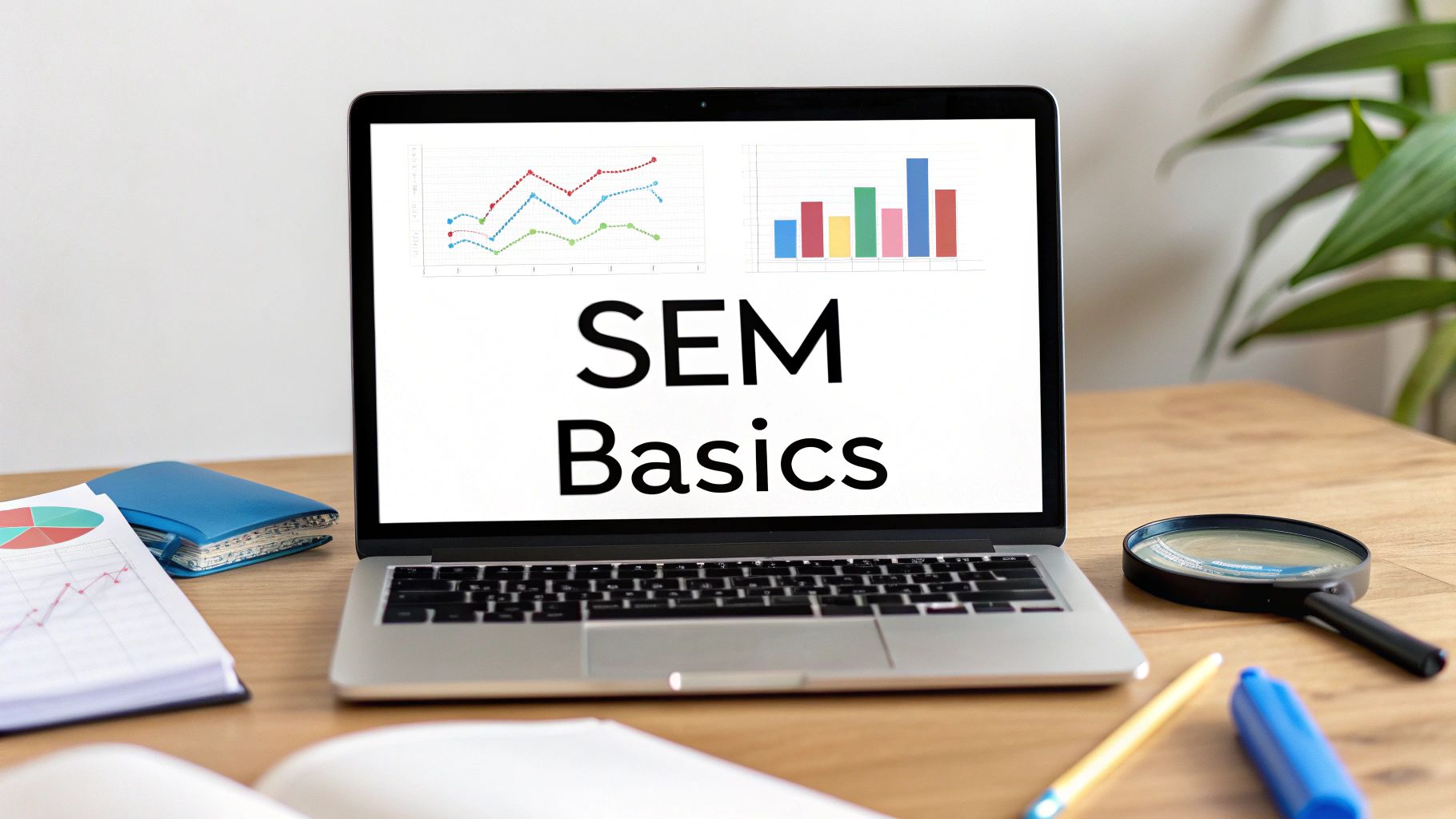


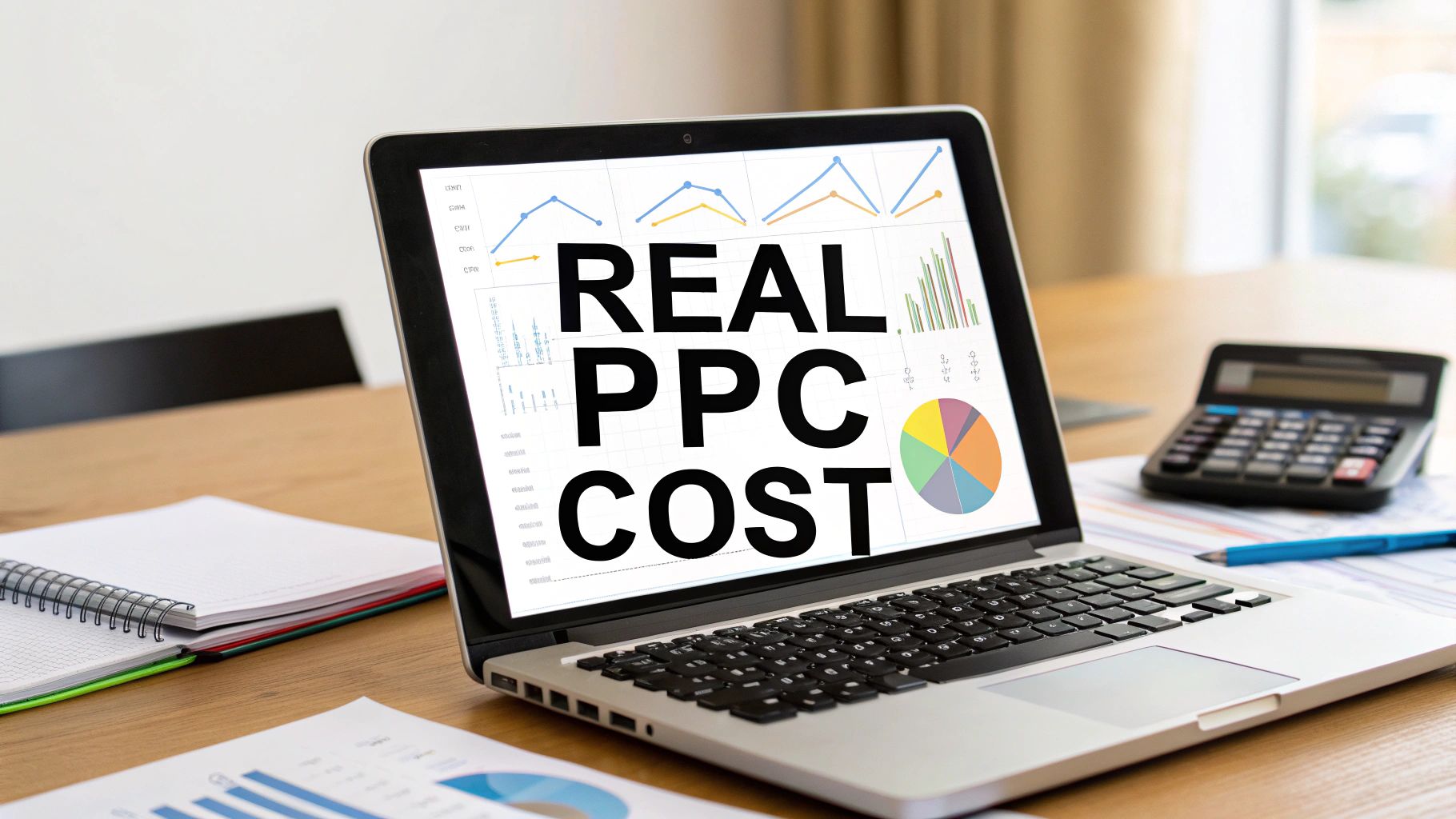
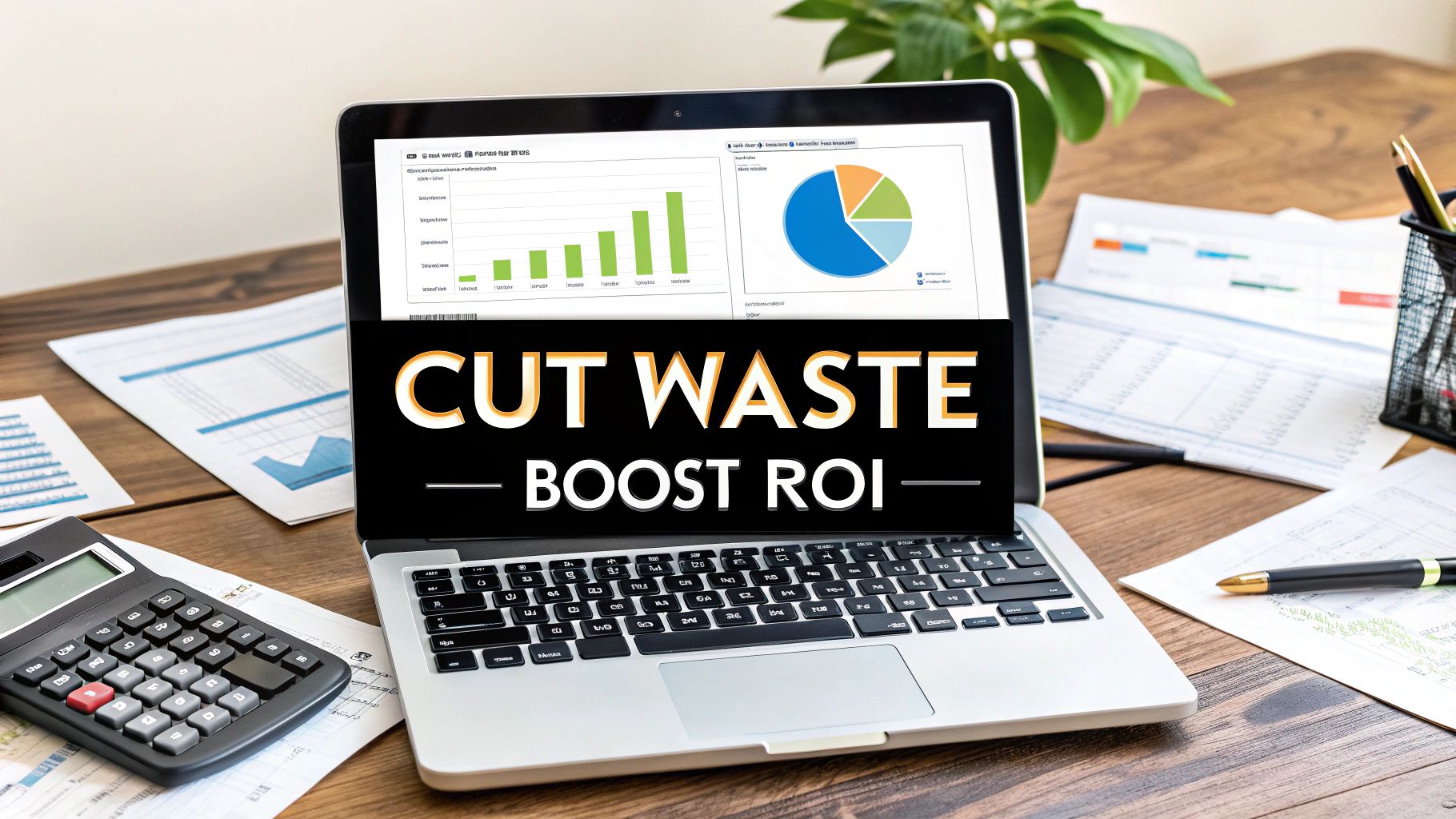
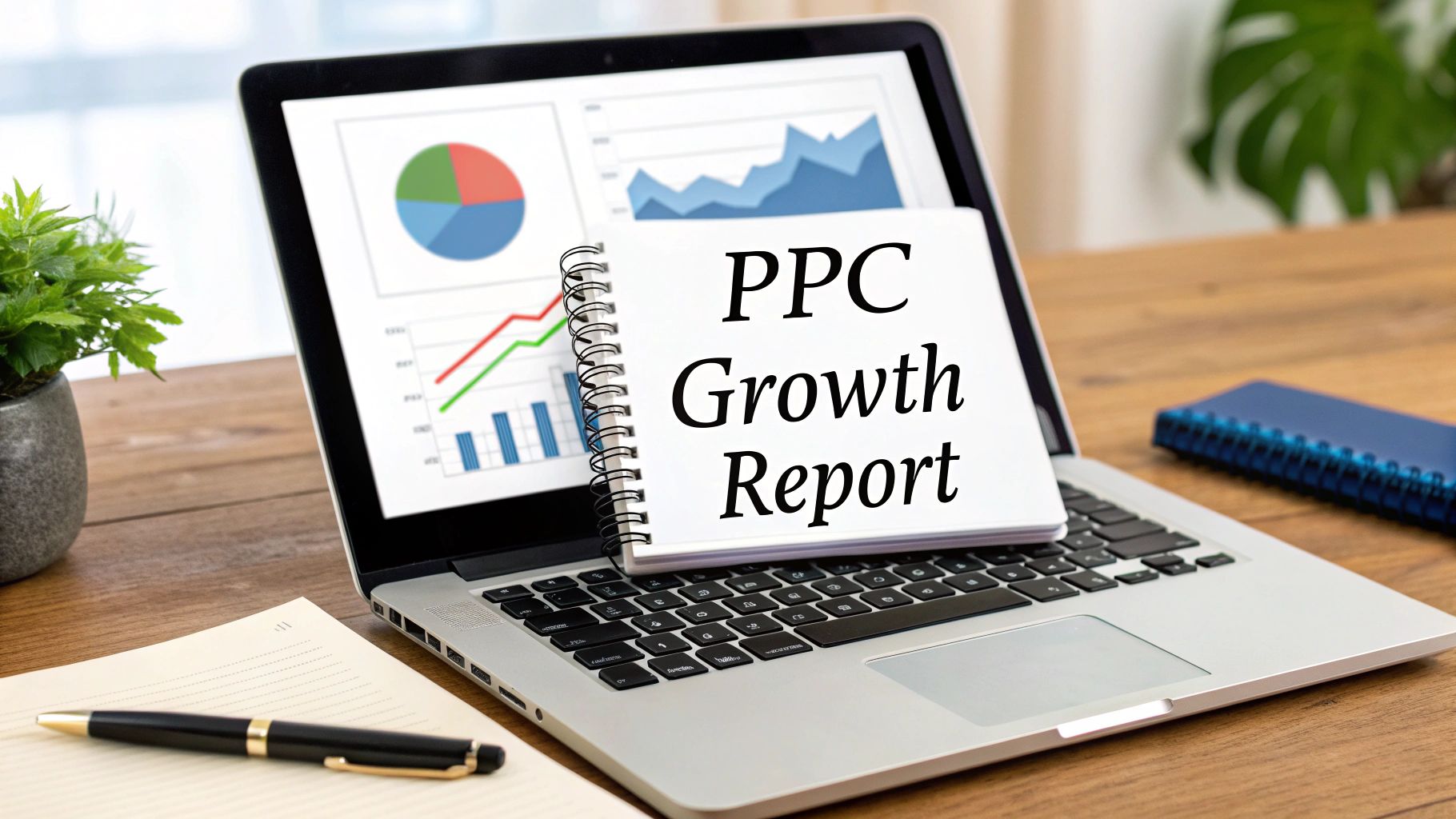
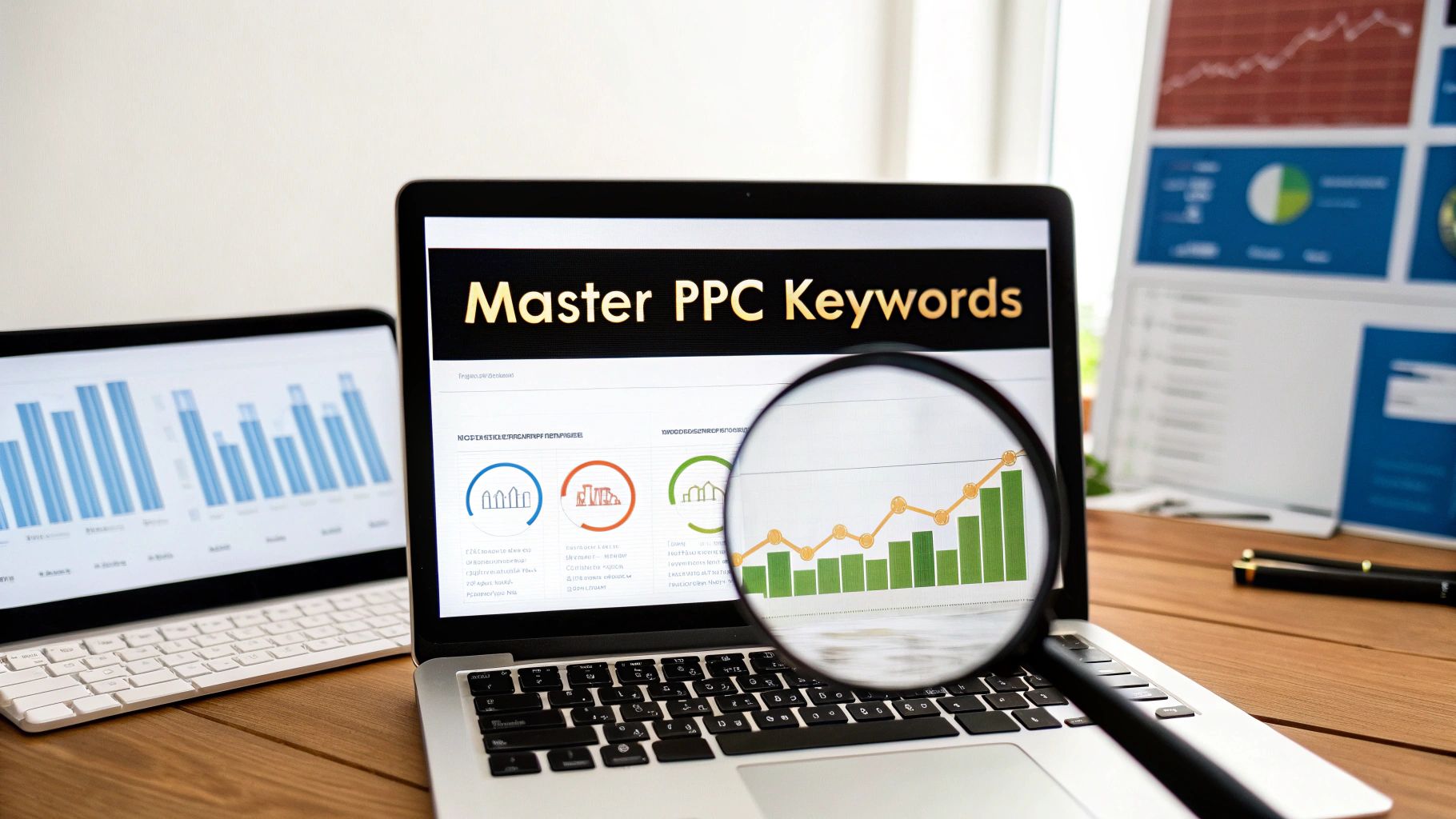
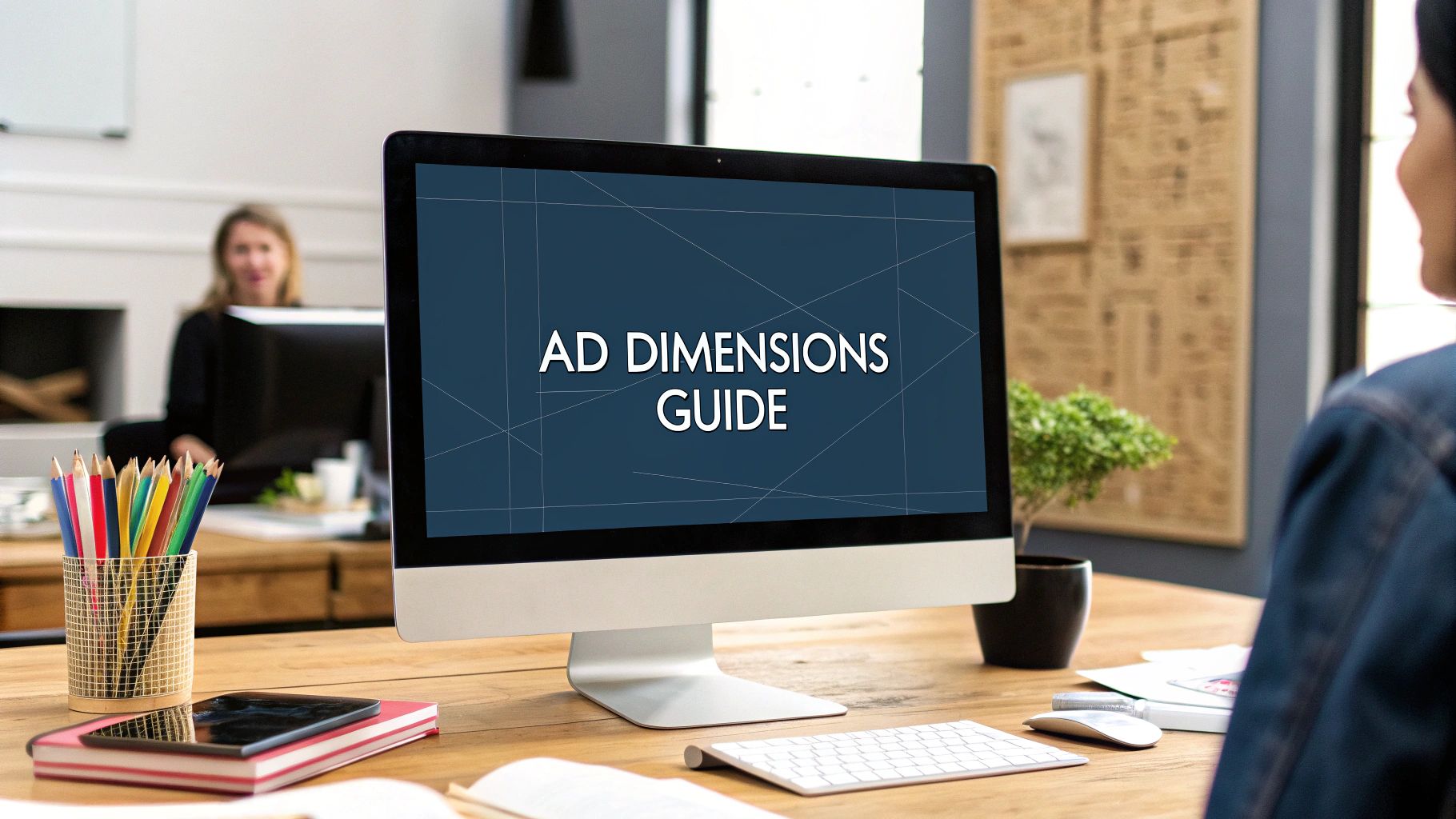
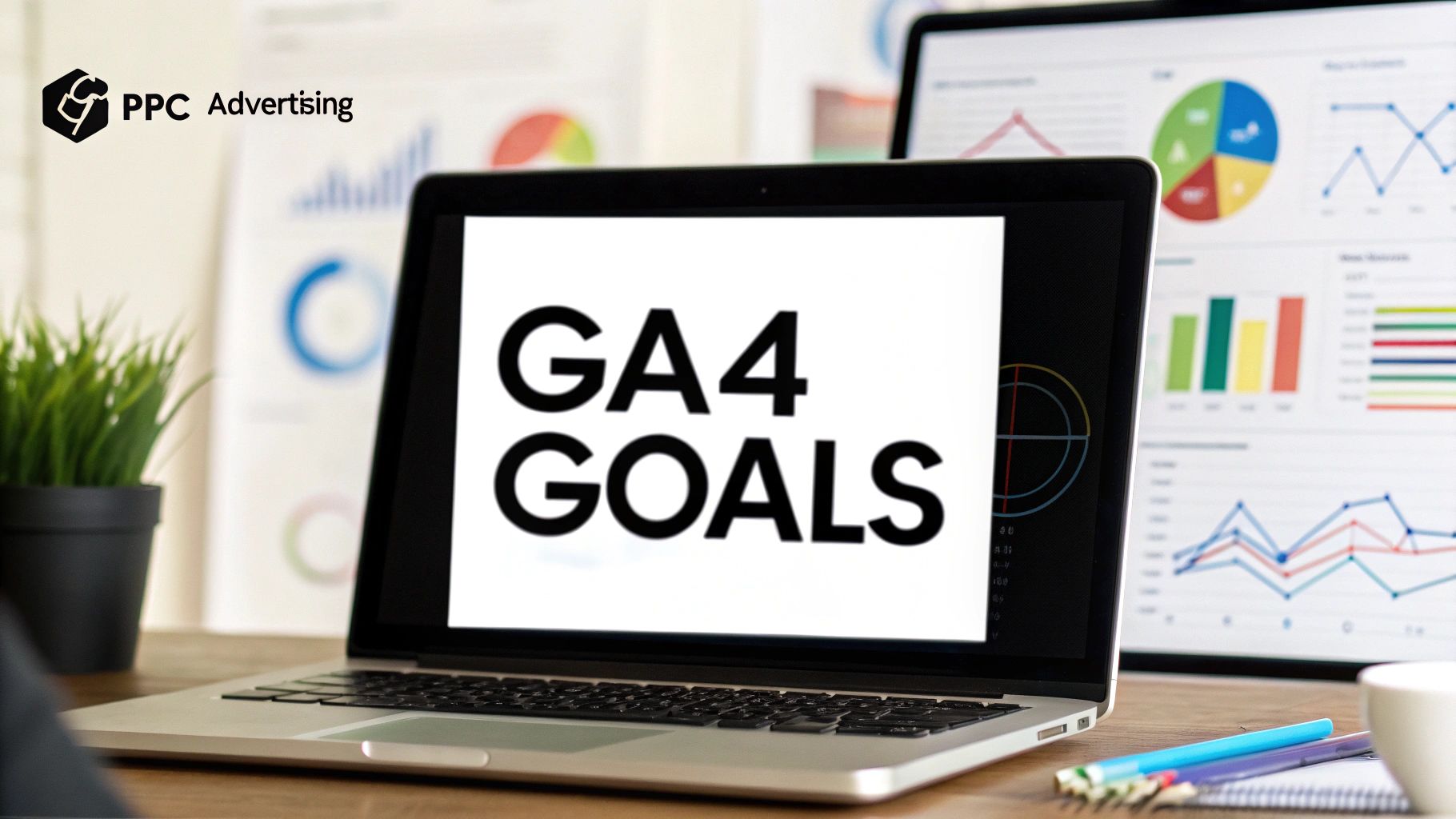
Comments